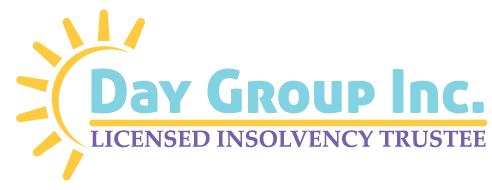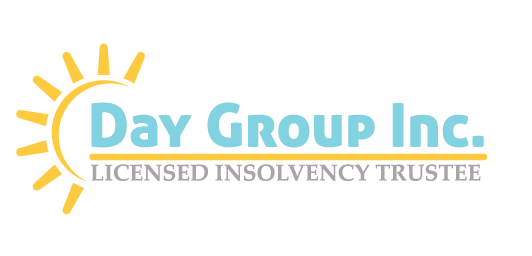Debt Help in Canada
Introduction
Are you struggling to keep up with debt payments and looking for debt help in Canada? You’re not alone, and you don’t have to face this challenge by yourself. Many Canadians find themselves in similar financial situations, but with the right guidance, you can regain control over your finances. In this guide, we’ll walk you through the steps toward managing your debt effectively and achieving lasting financial freedom.
Understanding Your Debt
Types of Debt in Canada and Their Implications
Debt comes in many forms, from credit cards and personal loans to mortgages and business liabilities. Each type of debt requires a specific approach to repayment. For instance, credit card debt typically carries higher interest rates compared to a mortgage, which means it needs a more aggressive strategy to prevent it from spiraling out of control. Understanding the different types of debt and their characteristics is crucial for successful debt management.
The Emotional Impact of Debt
Debt is not just a financial burden—it often comes with significant emotional stress. Anxiety, sleepless nights, and the pressure of mounting bills can take a toll on your mental health. Addressing these emotional challenges is just as important as tackling the financial aspects. Acknowledge the stress and find ways to manage it alongside your debt.
Know Your Rights and Responsibilities
Debt Collection Laws in Canada
As a consumer, you have rights when it comes to dealing with creditors and collection agencies. Canadian laws protect you from unfair practices, such as harassment or false claims about your debt. Familiarizing yourself with these protections empowers you to stand your ground during tough conversations with creditors. For a more detailed explanation click here.
Understanding Wage Garnishment
Wage garnishment is when a creditor legally takes a portion of your income to repay your debt. While this can significantly affect your finances, there are limits on how much can be garnished. Negotiating a payment plan before it reaches this stage can help you avoid or minimize garnishment. Here is an additional resource explaining wage garnishment.
Dealing with Collection Agencies
When faced with collection agencies, it’s important to remain calm and assertive. Keep detailed records of all interactions, and don’t hesitate to negotiate. Most importantly, addressing the issue is key—ignoring the problem won’t make it disappear. Engage proactively to find a solution that works for both parties. If this is an issue you’re struggling with this article may be what you’re looking for.
Building Financial Literacy and Budget Management
The Importance of Financial Literacy
A solid foundation in financial literacy is essential for managing debt. Understanding how interest rates affect your payments, how credit scores are calculated, and the long-term effects of late payments can drastically improve your financial decision-making. Broader economic factors, such as inflation and economic cycles, also play a role in shaping your financial health.
Mastering Budgeting Techniques
Budgeting is one of the most effective tools in debt management. Start by closely tracking your income and expenses to identify areas where you can cut back. Eliminate non-essential spending and prioritize debt repayment. There are plenty of budgeting apps and tools available to help you stay organized and stick to your plan.
Exploring Debt Relief Options
Consumer Proposals: A Viable Debt Relief Option
A consumer proposal is a legal agreement with your creditors to pay back a portion of your debt over time. It serves as an alternative to bankruptcy, allowing you to maintain control of your assets while managing your debt. This option is worth considering if you’re overwhelmed by high-interest payments.
Debt Consolidation: Simplify Your Debt Repayment
Debt consolidation combines multiple debts into one loan, often with a lower interest rate. This approach simplifies the repayment process, but it’s important to ensure the terms align with your long-term financial goals before moving forward. Always assess whether consolidation genuinely reduces your financial burden.
The Role of Licensed Insolvency Trustees in Canada
Licensed Insolvency Trustees (LITs) are authorized professionals who can help you explore your debt relief options. They assess your financial situation, explain the choices available, and negotiate with creditors on your behalf. LITs are your advocates, guiding you toward the best solution for regaining financial control. For more detailed information click here.
Protecting Yourself from Creditors
Legal Ways to Safeguard Your Assets
There are legal methods available to protect your assets from creditors. Understanding exemptions under Canadian bankruptcy laws or utilizing consumer proposals can help shield your property from being seized. It’s essential to know these protections as part of a comprehensive debt management strategy.
Tips for Successful Creditor Negotiations
Negotiating with creditors can be intimidating, but with the right approach, you can often reach an agreement that benefits both sides. Present a realistic repayment plan, be transparent about your financial situation, and consider enlisting professional help to negotiate better terms.
Conclusion
Debt can feel like a never-ending maze, but it’s navigable with the right tools and knowledge. From understanding the different types of debt to negotiating with creditors, there are numerous ways to manage your financial challenges. This guide is just the beginning—take charge of your financial future today.
Get Professional Debt Help Now
If you’re ready to start your journey to financial freedom, don’t hesitate to seek professional debt help. A free consultation with a Licensed Insolvency Trustee at Day Debt can provide you with personalized guidance and solutions to help you tackle your debt head-on. Get started here.


